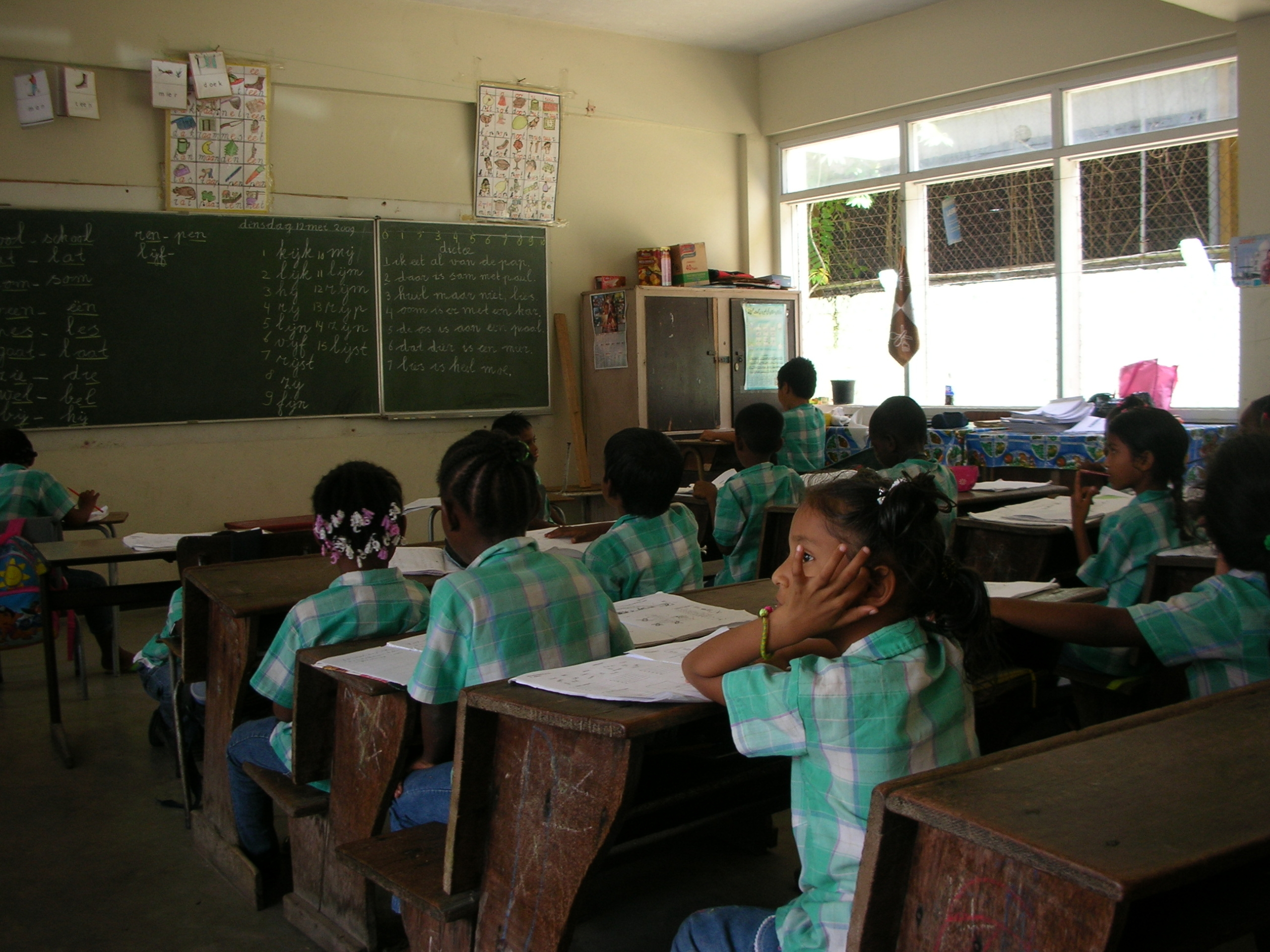3 Initiatives Tackling Child Poverty in Suriname
 Suriname is a Dutch-speaking nation located on the South American continent. According to the World Bank, 17.5% of the Surinamese population earn less than $6.85 per day. In other terms, more than 100,000 people in Suriname are impoverished according to the World Bank’s upper-middle income poverty line. Of note, 26% of children younger than 14 fell below this same poverty line in 2024, highlighting that a significant number of children belong to this more vulnerable portion of the population.
Suriname is a Dutch-speaking nation located on the South American continent. According to the World Bank, 17.5% of the Surinamese population earn less than $6.85 per day. In other terms, more than 100,000 people in Suriname are impoverished according to the World Bank’s upper-middle income poverty line. Of note, 26% of children younger than 14 fell below this same poverty line in 2024, highlighting that a significant number of children belong to this more vulnerable portion of the population.
In 1993 and again in 2014, government-led solutions sought to combat child poverty in Suriname by reinforcing children’s right to education and decreasing the likelihood of child exploitation. Suriname’s Human Development Index figure of 0.690 in 2022, as opposed to the earliest recording of 0.667 in 2004, indicates a steady increase in child poverty alleviation, a positive achievement compared to neighboring countries. However, work remains to tackle the challenges faced by the young demographic. Therefore, here are some key initiatives working to tackle child poverty in Suriname:
Move Forward Suriname
The Move Forward Organization is a nonprofit organization based in the Netherlands, with efforts extending abroad to Suriname. In 2017, it kick-started a project in the neighborhood of Sunny Side, a suburb outside the capital Paramaribo. Move Forward Suriname offers an opportunity for greatly disadvantaged children to foster a sense of community through a program of lessons in music, dance and sport.
Between 2017-2018 and again in 2023, the initiative proved successful in providing these children with facilities, coaching and, crucially, a positive environment that prioritizes their well-being. The initiative is free and accessible, with bus transport provided for the weekly events.
The organization launched a new funding target of $3,000 with the ambition of returning to Sunny Side and providing the local children with these benefits once again. Currently, this round of funding aims to use its growing team of coaches to grant these children a robust skill set for employment opportunities as they move into adulthood. These skills include filming, photography and social media creation.
School Meals Coalition
According to the World Factbook, around 6.7% of children younger than the age of 5 in Suriname were underweight in 2018. This level of malnourishment often leads to multifaceted issues for young, growing children. These include diseases such as anemia, stunting during critical stages of growth and a general lack of concentration in day-to-day life. All of these issues pose a threat to these children’s well-being and future.
School Meals Coalition is an organization that focuses on policy change and works both in Suriname and internationally. Its initiative ensures that school children are entitled to meals that are equally nutritious and sustainable. Accordingly, it works closely with local producers and farmers to monitor and ensure the quality of the products fueling children as they learn and play.
In September 2023, the Surinamese government joined its scheme, supported by the Minister of Education, H.E. Henri Ori. Currently, 15,000 children are recipients of these life-altering meals and the Minister’s goal is to have all Surinamese children across the country benefit from this initiative by the end of the decade.
UNICEF and Telesur Partnership
For Suriname’s youth, mental health decline relating to living in deprived conditions presents an urgent issue. According to the United Nations Children’s Fund (UNICEF), around 36% of young Surinamese people have thought about committing suicide and 76% have recorded feeling anxiety and depression in their day-to-day lives.
In March 2024, UNICEF Suriname announced a cooperative effort with the Latin American news service Telesur to help improve the well-being and prosperity of all Surinamese children. The new partnership seeks to incorporate awareness programs to support children’s mental health. More specifically, it is concerned with developing assertiveness, self-confidence and self-sufficiency in the underprivileged Surinamese youth.
At the signing of this partnership, the UNICEF representative for Guyana and Suriname, Nicolas Pron, argued that private “partnerships are at the heart of how we deliver results for children” and that the devised programs will be stimulated by private equity. The partnership also targets private companies wielding influence in the region. It aims to rally their corporate responsibility to pursue aid for Surinamese children.
Final Thoughts
For Suriname, alarming figures surrounding malnourishment, mental health and lack of opportunity jeopardize hope for prosperity among the country’s youth. However, nongovernmental initiatives intend to turn those statistics on their head, tackling child poverty in Suriname by improving immediate conditions and fostering wider, long-term social development.
– Ramiro Ruiz Martinez
Ramiro is based in Edinburgh, Scotland and focuses on Good News and Technology for The Borgen Project.
Photo: Wikimedia Commons
